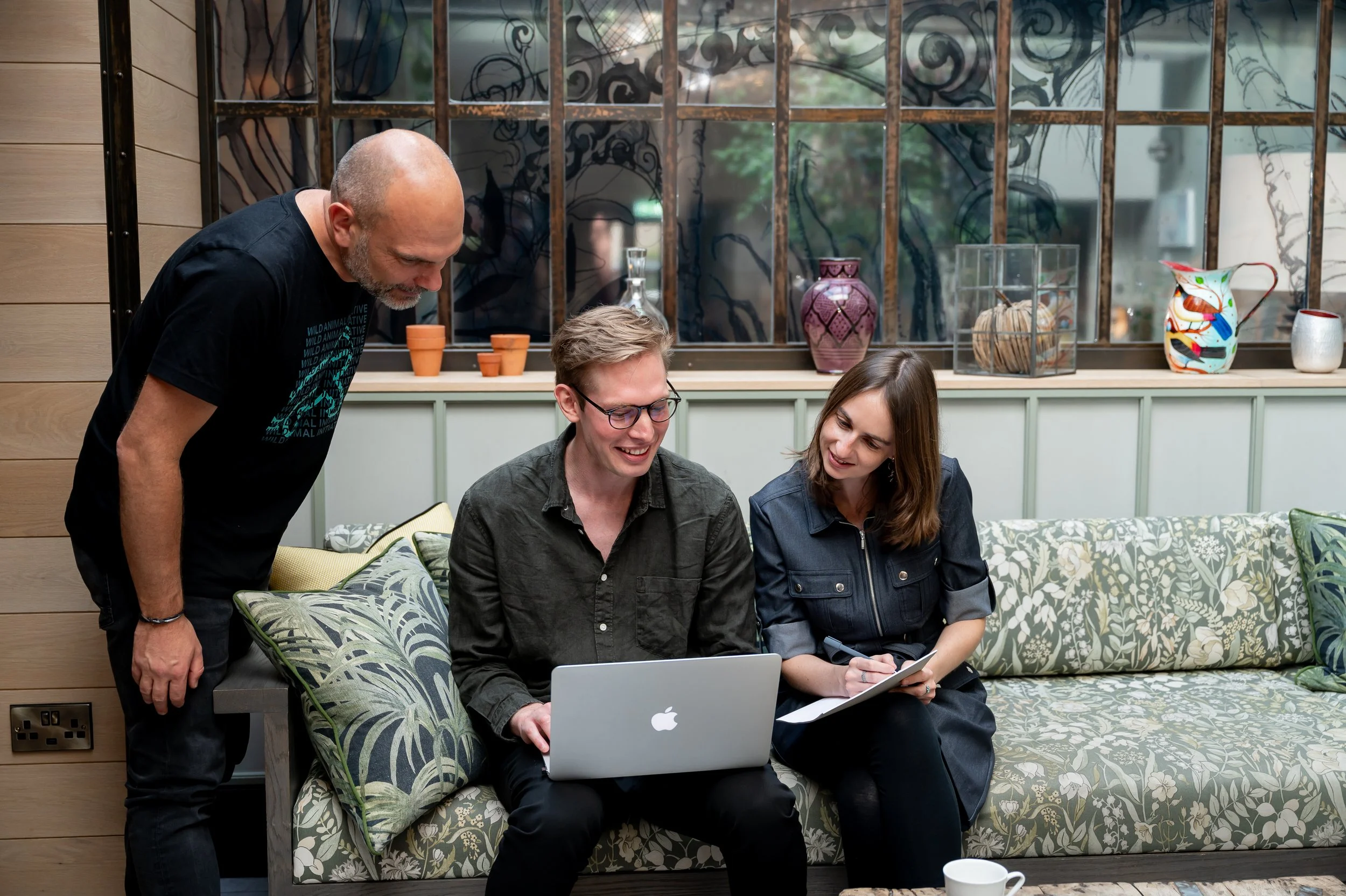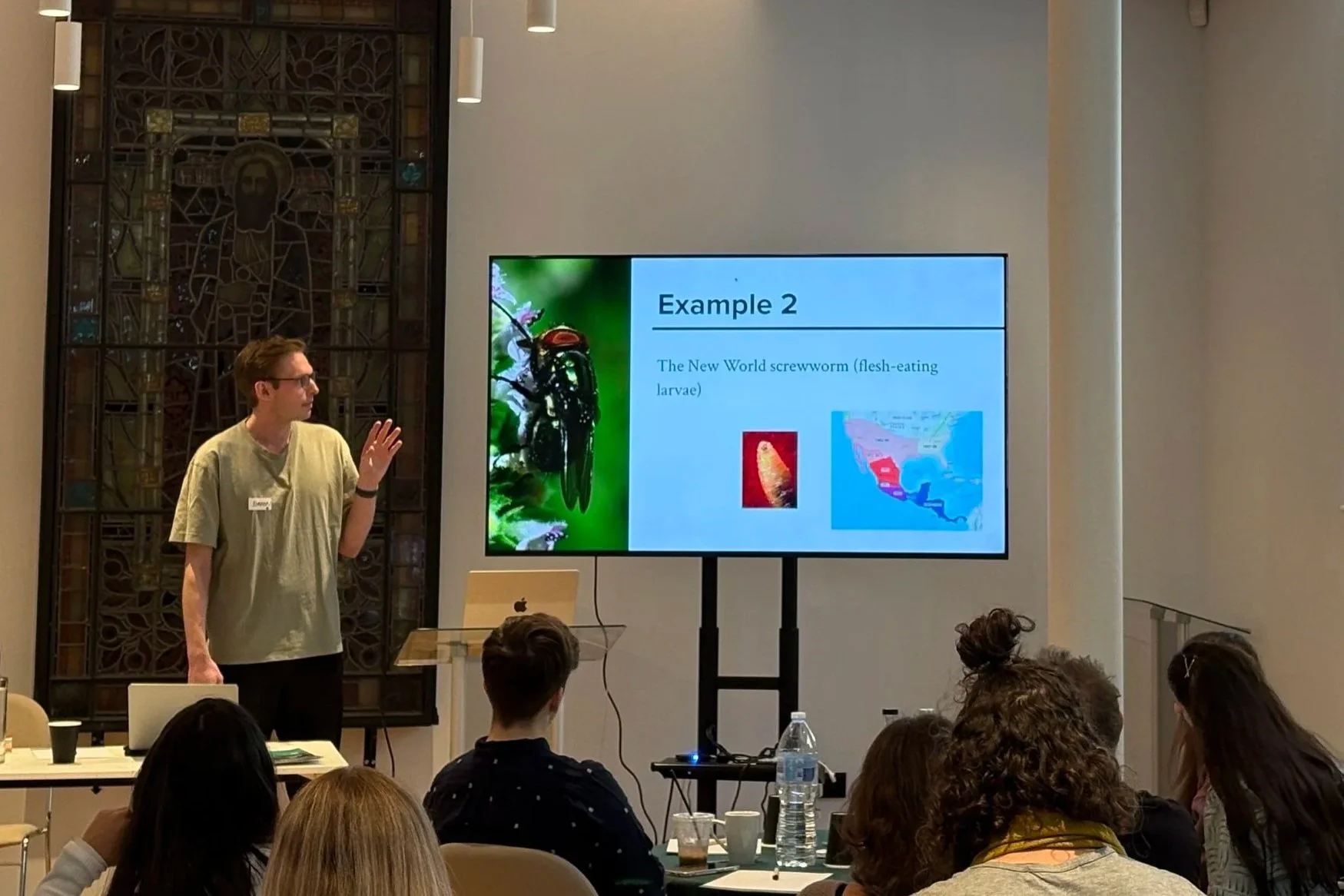Evolving alongside the field: Strategy Researcher Simon Eckerström Liedholm’s path to wild animal welfare science
October 14, 2025
Wild Animal Initiative produces and supports wild animal welfare research, but it’s not just research for research’s sake. We see this work fitting into a bigger picture of helping the field of wild animal welfare science grow, so that someday people will have the knowledge and data they need to help wild animals responsibly and at scale.
Because we have this vision for the field and its impact, and because the path has never been walked before, it’s critical that we have a strong strategy for getting there. We believe that the most effective way for scientists to uncover insights that will help wild animals is if their work is done within an independent discipline that has the specific goal of understanding wild animal welfare. Our Strategy Team identifies the best and most efficient ways to help the field grow.
“Our team’s work relates to figuring out what we should do and why, and if we need to make changes to our methods or our strategy,” says Strategy Researcher Simon Eckerström Liedholm, who has been with Wild Animal Initiative since its earliest days. “Answering those questions sometimes involves producing academic papers, although a lot of the work our team conducts will come in the form of reports and in-depth investigations on specific questions — trying to get a good sense of the development of the field.”
Simon’s title, Strategy Researcher, is not a conventional one. The role was specially designed to take advantage of Simon’s background in scientific research and his interest in cultivating the field.
One step at a time
As an undergraduate student, Simon had a broad range of interests and considered several fields, including philosophy and geography, before deciding to major in biology. He went on to earn a master’s degree in evolutionary biology, then a PhD in ethology at Stockholm University, focusing on behavioral ecology and evolutionary biology, studying things like brain size evolution in tropical freshwater fish (specifically killifish).
He thinks of his career itself in evolutionary terms: Its current form wasn’t planned or necessarily obvious at the start, given that Simon only learned about wild animal welfare as a pressing problem to work on when he was about half way through his PhD. But looking back at how his career progressed, now it seems smooth and natural to him. He considers wild animal welfare science to be a great fit.
“To continue with the analogy of evolution, throughout my career, each step I’ve taken has seemed like a good step to take,” he says. “Maybe I didn’t plan to develop the ability to fly, but as it turned out I was eventually able to use my current traits — read ‘skills’ — to turn into the equivalent of a gliding squirrel, I suppose.”
The most good, for the greatest number
While Simon was working on his PhD, he learned about effective altruism: a social movement focused on improving the world as much as possible, in cost-effective ways. Over the last 15 years or so, effective altruism communities have formed around the globe, including in Simon’s home city of Stockholm.
“I was already thinking about what it means to be consistent and rational when making morally important decisions. What food should we avoid in order to not cause animals to suffer? How far does it extend — should I consider arthropods?,” Simon recalls. “I think the idea of not shying away from difficult or unusual questions just because they’re far outside the Overton window in the rest of society was something that resonated with me.”
Before engaging with effective altruism, Simon hadn’t thought about doing anything related to animal welfare in a professional capacity. But he became more and more convinced that it would be a worthwhile pursuit to apply his scientific background toward helping animals somehow — and wild animals in particular, given his skillset.
“The big question was just, ‘Is there anyone willing to pay me for doing this?,’” Simon remembers. “And at the point of first encountering the idea of improving wild animal welfare on a large scale, the answer seemed to be ‘probably not.’”
Strategy projects
But right around the time Simon was finishing his PhD in 2019, he heard about Wild Animal Initiative being founded, and they were hiring. He initially accepted a general research position, and in 2024, he shifted to the role of Strategy Researcher.
Some of Simon’s major projects at WAI have been a report and a peer-reviewed article about contraception as a promising intervention for wild animal welfare. Compared with conventional poisons, which cause great suffering to animals considered “pests” — such as rats or pigeons — contraceptives could help municipalities and companies manage wild animal populations humanely.
“I’m glad that the contraception paper is out — no one else had really made that point clearly,” Simon says. “I felt like it was in a sense breaking new ground, and exploring questions that hadn’t been explored in any meaningful detail before. That was both sort of scary, and really fun and interesting.”
This year, Simon is working on a report on insecticides and their effects on insect welfare, to guide future research in this area, whether at Wild Animal Initiative or elsewhere.


